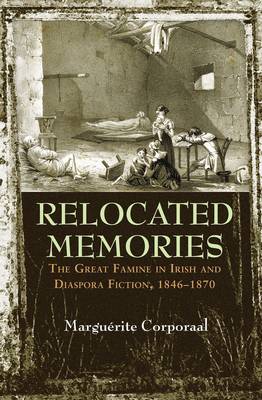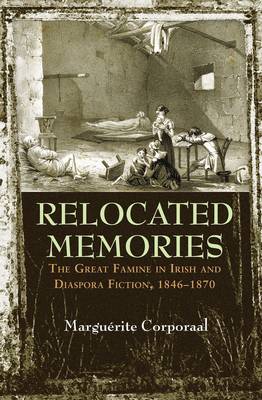
- Afhalen na 1 uur in een winkel met voorraad
- Gratis thuislevering in België vanaf € 30
- Ruim aanbod met 7 miljoen producten
- Afhalen na 1 uur in een winkel met voorraad
- Gratis thuislevering in België vanaf € 30
- Ruim aanbod met 7 miljoen producten
Zoeken
€ 94,45
+ 188 punten
Uitvoering
Omschrijving
The Great Famine radically transformed Ireland; nearly one million people of the rural countryside died, and the eviction of farmers led to massive emigration. The Famine encouraged anti-English, nationalist sentiments, and this trauma is seen as pivotal in the development of an Irish anticolonial consciousness and in the identity formation of transatlantic Irish communities. In Relocated Memories, Corporaal challenges the persistent assumption that the first decades after the Great Irish Famine were marked by a pervasive silence on the catastrophe. Discussing works by well-known authors such as William Carleton and Anthony Trollope as well as more obscure texts by, among others, Dillon O'Brien and Susanna Meredith, Corporaal charts the reconfigurations of memory in fiction across generations and national borders.
Specificaties
Betrokkenen
- Auteur(s):
- Uitgeverij:
Inhoud
- Aantal bladzijden:
- 328
- Taal:
- Engels
- Reeks:
Eigenschappen
- Productcode (EAN):
- 9780815634980
- Verschijningsdatum:
- 24/04/2017
- Uitvoering:
- Hardcover
- Formaat:
- Genaaid
- Afmetingen:
- 152 mm x 229 mm
- Gewicht:
- 635 g

Alleen bij Standaard Boekhandel
+ 188 punten op je klantenkaart van Standaard Boekhandel
Beoordelingen
We publiceren alleen reviews die voldoen aan de voorwaarden voor reviews. Bekijk onze voorwaarden voor reviews.







